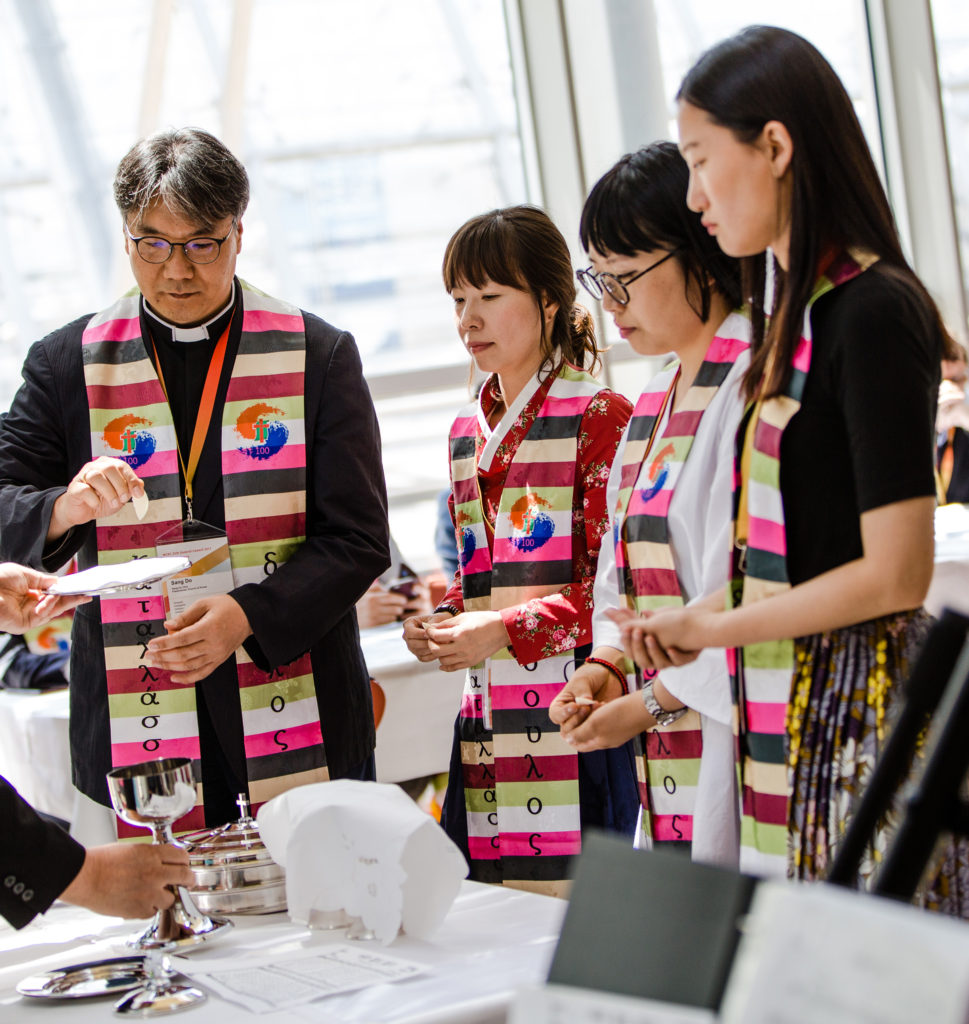By Phil Tanis, Executive Secretary for Communications & Operations, World Communion of Reformed Churches
Living abroad in what has shaped up to be quite a season of discontent not only in the United States but around the world, I often consider myself to be in a privileged position here in Hannover, Germany, working for the World Communion of Reformed Churches (WCRC).
The WCRC, composed of over 230 denominations from more than 105 countries, is “called to communion and committed to justice.” The focus of our work strengthens ties between our members while working for justice globally, regionally, nationally, and even locally.
We always insist that true peace cannot come without justice, and reconciliation is a critical component in achieving this. The paths toward and through reconciliation are many and varied. It does not mean compromising key faith values, nor accepting the sinful actions of people—but it does mean recognizing that each and every one of us is a beloved child of God, no matter how far we may have strayed.
Sometimes (often?) practicing reconciliation means taking actions that run counter to accepted societal norms and expectations. For instance, the WCRC has long been dedicated to bringing a lasting peace (and even reunification) to the Korean Peninsula. In these efforts we have acted as a bridge between our member churches in South Korea and the Korean Christian Federation, the government-sanctioned Protestant organization in the North. Despite sanctions, tensions, and militaristic actions by both the North and South (and their allies), we have endeavored to keep sisters and brothers on both sides of the DMZ talking. This was joyfully expressed at our 2017 General Council where the Koreans gathered around the Lord’s Table.
Working toward reconciliation can also mean speaking out in life-threatening situations. The Ecumenical Forum on the Anglophone Crisis in Cameroon, which the WCRC initiated, recently brought together religious leaders from several faith traditions to become “religious diplomats” to “objectively, faithfully, fearfully and lovingly assist, if not play a front role to bring about a just and peaceful end to the armed conflict ravaging Anglophone Cameroon,” as well as confront the Boko Haram insurgency in the north of the country.
These projects of professional reconciliation have provoked me to think about how I practice reconciliation personally. Especially this past year my Facebook feed has been awash in disagreements, conspiracies, anxieties, and the like. I mourn the apparent divisions opened up between myself and both friends and family.
Perhaps here my distance helps, as I have time and space to consider how to engage with those on the “other side” when next I am able to see them face to face. I anticipate buying several rounds and simply listening to them share their thoughts and convictions. One of the wonders of my job is to hear the stories of sisters and brothers from around the world, to be connected through our faith in Christ despite the linguistic, cultural, and contextual differences. I trust that this will also be the case when reconnecting to friends and family in exotic West Michigan.
God’s love is sufficient to overcome human divisions and reconcile us. God’s love compels me to be a part of that process.
photo credit to Anna Siggelkow/WCRC

